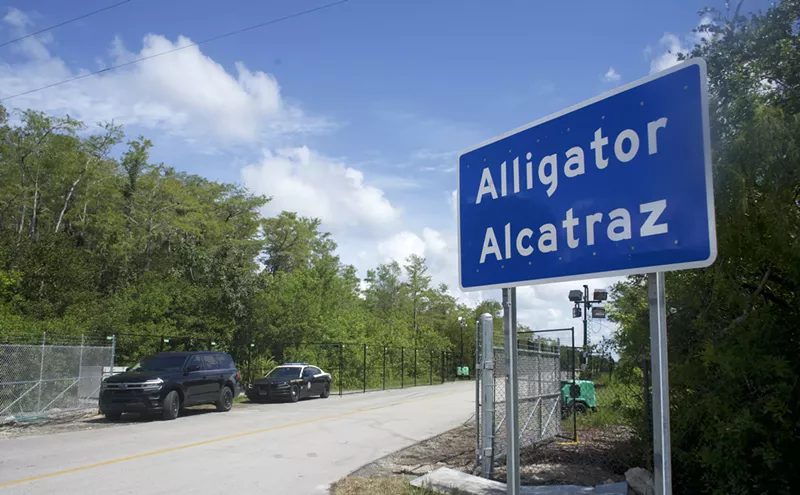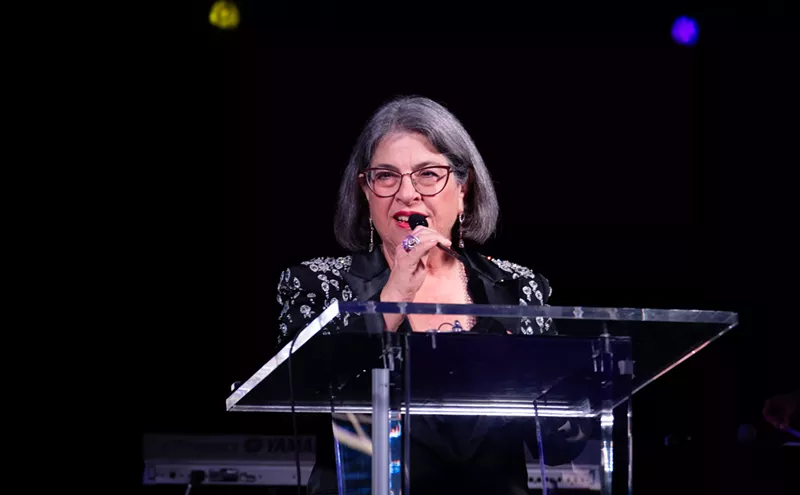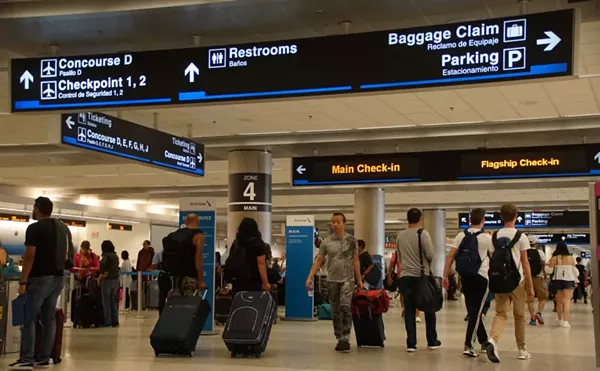When Miami cop Reynoldo Goyos shot and killed an unarmed man named Travis McNeil at a traffic stop three years ago, the Miami PD left no doubt about the killing's propriety. Miami PD's chief promptly fired Goyos and called McNeil's death "unjustified." The feds later investigated the department and, based in part on McNeil's killing, found a "pattern of excessive force."
So why is the City of Miami now preparing to spend thousands of taxpayer dollars fighting McNeil's family in court over a financial settlement?
"This case is a carbon copy of Ferguson," says Randall Berg, a lawyer representing McNeil's relatives. "In fact, it's probably worse than Ferguson."
See also: Amid Ferguson Conflict, Activists Decry Miami Cop Rehired After Killing Travis McNeil
McNeil's family has already settled a federal lawsuit over his death, but last week they rejected an offer from the city, which Berg says was negligible.
They're now set for a February trial over the death. "The city is refusing to adequately compensate his two children for the death of their father," Berg says. "The city's offer was a nuisance value, which is shameful."
City of Miami spokesman Angel Zayon declined to comment, citing the pending legislation.
But the case will certainly put the city's attorneys in an odd position, considering that just a few months ago they were arguing before an arbitration board that Police Chief Manuel Orosa was right to fire Goyos for McNeil's death.
The city lost that case -- with an arbitrator ruling Goyos had to be rehired and paid $71,000 in backpay. And now, those same attorneys are poised to go to civil court to argue the exact opposite case: That Goyos wasn't negligent in killing McNeil.
Yet the facts are stark. McNeil was pulled over in a late-night traffic stop on Feb. 10, 2011, by three unmarked cars staffed with plainclothes officers. The cops were working a gang detail in the area near a lounge where McNeil and a friend had been drinking.
But McNeil had no gang ties, was unarmed and -- according to Berg -- had no chance to react to the stop before dying in a hail of bullets. Goyos shot the 28-year-old after he didn't raise his hands quickly enough and had a black object in his hand.
Orosa fired the cop because he put himself in a dangerous position and then gave inconsistent statements about why he'd killed McNeil. (An arbitrator, though, disagreed, finding that a black cell phone on McNeil's floor was proof enough that he may have had a gun-like object that caused Goyos to fire.)
"They did an improper traffic stop and then blew him away," Berg says. "There was no gun, no drugs, and no sign he was part of gang, which was the stated point of the operation why they were hanging out there in the first place."
McNeil's mother, Sheila, says it's been heart wrenching to watching grand juries let officers walk in Ferguson and now New York City in the Eric Garner case.
Sheila McNeil says local politicians are wrong to loudly protest those cases while watching the city line up a court fight against her family in Miami.
"You're talking bout what's going on in Ferguson and yet you've got all these cases in your own district and you're not doing anything about them?" she says.
The McNeil family's civil suit has a February 9 court date, Berg says.
Follow Miami New Times on Facebook and Twitter @MiamiNewTimes.












